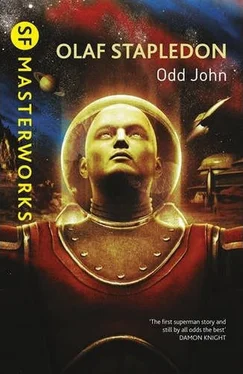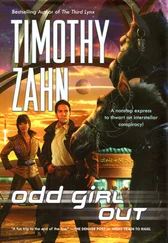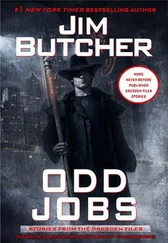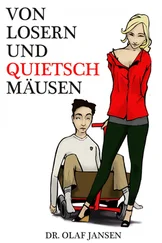Olaf Stapledon - Odd John
Здесь есть возможность читать онлайн «Olaf Stapledon - Odd John» весь текст электронной книги совершенно бесплатно (целиком полную версию без сокращений). В некоторых случаях можно слушать аудио, скачать через торрент в формате fb2 и присутствует краткое содержание. Город: London, Год выпуска: 2012, ISBN: 2012, Издательство: Hachette UK, Жанр: Фантастика и фэнтези, на английском языке. Описание произведения, (предисловие) а так же отзывы посетителей доступны на портале библиотеки ЛибКат.
- Название:Odd John
- Автор:
- Издательство:Hachette UK
- Жанр:
- Год:2012
- Город:London
- ISBN:9780450038570
- Рейтинг книги:5 / 5. Голосов: 1
-
Избранное:Добавить в избранное
- Отзывы:
-
Ваша оценка:
- 100
- 1
- 2
- 3
- 4
- 5
Odd John: краткое содержание, описание и аннотация
Предлагаем к чтению аннотацию, описание, краткое содержание или предисловие (зависит от того, что написал сам автор книги «Odd John»). Если вы не нашли необходимую информацию о книге — напишите в комментариях, мы постараемся отыскать её.
Odd John — читать онлайн бесплатно полную книгу (весь текст) целиком
Ниже представлен текст книги, разбитый по страницам. Система сохранения места последней прочитанной страницы, позволяет с удобством читать онлайн бесплатно книгу «Odd John», без необходимости каждый раз заново искать на чём Вы остановились. Поставьте закладку, и сможете в любой момент перейти на страницу, на которой закончили чтение.
Интервал:
Закладка:
The many eyes were now turned from me. The young winged minds had soared beyond my reach.
Presently Tsomotre, the neckless Tibetan, moved to a sort of harpsichord, tuned to the strange intervals which the islanders enjoyed. He played. To me his music was indescribably unpleasant. I could have screanied, or howled like a dog. When he had done, a faint involuntary murmur from several throats seemed to indicate deep approval. Shahîn rose from his seat, looking with keen inquiry at Lo, who hesitated, then also rose. Tsomotre began playing once more, tentatively. Lo, meanwhile, had opened a huge chest, and after a brief search she took from it a folded cloth, which when she had shaken it out was revealed as an ample and undulatory length of silk, striped in many colours. This she wrapped around her. The music once more took definite form. Lo and Shahîn glided into a solemn dance, which quickened presently to a storm of wild movement. The silk whirled and floated, revealing the tawny limbs of Lo; or was gathered about her with pride and disdain. Shahîn leapt hither and thither around her, pressed toward her, was rejected, half accepted, spurned again. Now and then came moments of frank sexual contact, stylized and knit into the movement-pattern of the dance. The end suggested to me that the two lovers, now clinging together, were being engulfed in some huge catastrophe. They glanced hither and thither, above, below, with expressions of horror and exaltation, and at one another with gleams of triumph. They seemed to thrust some invisible assailant from them, but less and less effectively, till gradually they sank together to the ground. Suddenly they sprang up and apart to perform slow marionette-like antics which meant nothing to me. The music stopped, and the dance. As she returned to her seat, Lo flashed a questioning, taunting look at John.
Later, when I had described this incident in my notes, I showed my account of it to Lo. When she had glanced at it, she said, “But you have missed the point, you old stupid. You’ve made it into a love story. Of course, what you say is all right—but it’s all wrong too, you poor dear.”
After the dance the company relapsed into silence and immobility. Ten minutes later I slipped away to refresh myself with a walk. When I returned, the atmosphere seemed to have changed. No one noticed my entrance. There was something indescribably eerie in the spectacle of those young faces staring with adult gravity at nothing. Most disturbing of all was Sambo, sitting like a little black doll in his ample chair. Tears were trickling down his cheeks, but his soft little mouth seemed to have grown hard and proud and old. After a few minutes I fled.
Next morning, though the meeting had not ended till dawn, the normal life of the colony was afoot once more. I asked John to explain what had been happening at the meeting. He said they had at first merely been looking into their motives. The young especially had still a lot to learn in this respect. Both young and old had also done a good deal of work upon their deeper mutual relations, relations which in the normal species would have been far below the threshold of consciousness.
All the colonists, John said, had been engaged in making themselves known to one another as fully as possible. They had also, all of them, been disciplining themselves, making their minds more seemly and more effective. This they had performed in the presence of Langatse, their spiritual adviser, and of course under his guidance. With him they had also meditated deeply about metaphysics. In addition to all this, said John, they had been learning to expand their “now” to embrace hours, days; and narrowing it also to distinguish the present and the past strokes of a gnat’s wing. “And we explored the remote past.” he said, “helped greatly by Shên Kuo, whose genius moves in that sphere. We attained also a kind of astronomnical consciousness. Some of us at least glimpsed the myriads of peopled worlds, and even the minds of stars and of nebulae. We saw also very clearly that we must soon die. And there were other things which I must not tell you.”
Life on the island did not consist entirely of this exalted corporate activity. The islanders had to do a good deal of hard work of a much more practical kind. Every day two or three canoes would go out fishing. Nets and boats and harpoons had to be repaired. There was constant work in the garden and fruit-groves, and in the maize-fields. Hitherto there had been endless building operations in wood and stone, but when the islanders had discovered their impending fate, such work was abandoned. A good deal of minor woodwork was still afoot. Much of the “crockery” was made of wood, and the rest of shell or gourd. The machinery needed constant attention, and so did the Skid . I was surprised to learn that the Skid had made many voyages among the Polynesian Islands, actually bartering some of the handicrafts of the colony for native produce. Later I found that these voyages had another purpose.
All this manual work was entered into rather as sport than as toil, for it had never been a tyranny. The most serious attention of every member was given to very different matters. The younger islanders spent much time in the library and the lab., absorbing the culture of the inferior species. The elders were concerned with a prolonged research into the physical and mental attributes of their own kind. In particular they were grappling with the problem of breeding. At what age might their young women safely conceive? Or should reproduction be ectogenetic? And how could they ensure that the offspring should be both viable and supernormal? This research was evidently the chief work of the laboratory. Originally its aim had been mainly practical, but even after the discovery of their impending doom the islanders continued these biological experiments for their theoretical interest.
When we entered the labs we found several persons at work. Lo, Kargis and the two Chinese boys were apparently in charge of the research. Delicate experiments were being carried out on the germ cells of molluscs, fishes and specially imported mammals. Still more difficult work was in progress upon human ova and spermatozoa, both normal and supernormal. I was shown a series of thirty-eight living human embryos, each in its own incubator. These startled me considerably, but the story of their conception and capture startled me even more. Indeed, it filled me with horror, and with violent though short-lived moral indignation. The eldest of these embryos was three months old. Its father, I was told, was Shahîn, its mother a native of the Tuamotu Archipelago. The unfortunate girl had been seduced, brought to the island, operated upon, and killed while still under the anaesthetic. The more recent specimens, however, had been secured by milder methods, for Lo had invented a technique by which the fertilized ovum could be secured without violence to the mother. In all the more recent cases the mothers had yielded up their treasure unwittingly, and without leaving their native islands. They were merely persuaded to agree to comply with certain instructions given by the supernormal father. The technique apparently combined physical and psychical methods, and was imposed upon the girls as a sublime religious ritual.
There was also a series of five much younger and ectogenetically fertilized ova. In these cases both father and mother were members of the colony. Lo herself had contributed one specimen. The father was Tsomotre. “You see,” she said. “I am rather young for gestation, but my ova are all right for experimental purposes.” I was puzzled. I knew well that sexual intercourse was practised on the island. Why then had the fertilization of this ovum been carried out artificially? As tactfully as I could, I stated my difficulty. Lo answered with some asperity, “Why, of course, because I was not in love with Tsomotre.”
Читать дальшеИнтервал:
Закладка:
Похожие книги на «Odd John»
Представляем Вашему вниманию похожие книги на «Odd John» списком для выбора. Мы отобрали схожую по названию и смыслу литературу в надежде предоставить читателям больше вариантов отыскать новые, интересные, ещё непрочитанные произведения.
Обсуждение, отзывы о книге «Odd John» и просто собственные мнения читателей. Оставьте ваши комментарии, напишите, что Вы думаете о произведении, его смысле или главных героях. Укажите что конкретно понравилось, а что нет, и почему Вы так считаете.












